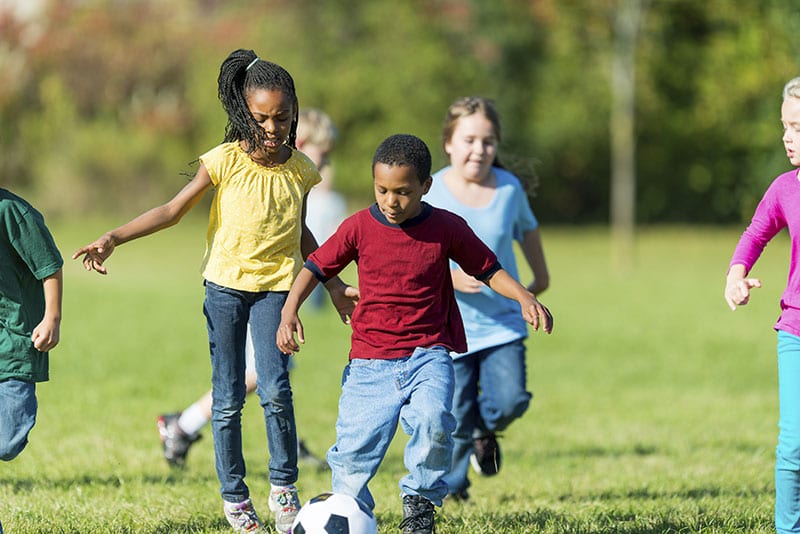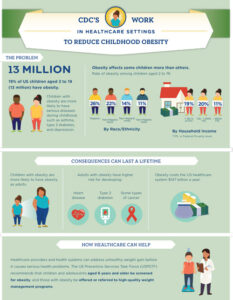September is National Childhood Obesity Awareness Month – Here are some helpful tips for talking to your child about healthy habits

September is National Childhood Obesity Awareness Month
SEPTEMBER IS NATIONAL CHILDHOOD OBESITY AWARENESS MONTH – And now is as good a time as ever to talk with your child about diet, exercise, and healthy habits.
According to studies, roughly %20 of kids ages 2 to 19 can be categorized as obese, which translates to about 14.7 million children. These studies show that not only are these statistics climbing, but its affecting youth earlier and earlier. The risk increases with diet, through foods like vending machine snacks, fast food and baked goods, not to mention fruit juices and other drinks high in sugar – little to no activity or sedentary practices such as tv or video games also increases this risk
- Help children create a healthy relationship with food
- Keep mealtimes regular, and don’t skip breakfast
- Offer a variety of foods, especially when children are young
- Keep snacks limited to specific times of the day to prevent children from eating out of boredom
- Don’t ban indulgences like ice cream or fried foods – just make sure they’re enjoyed in moderation
- Make physical activity a fun part of the daily routine like taking walks together, bicycling, playing active games or dancing
- Visit spaces designed for movement and play – like public parks and playgrounds, baseball fields, swimming pools or basketball courts
- Start early – find activities they love and encourage them to try new things to expand their horizons
While adults can’t expect children to understand nuances of science and body mass index, we can still help them understand the changes in their body as they grow – and most importantly, that their mental/ physical health and wellness is more important than any number. Nurturing and fostering healthy habits begins at home, and is the perfect way to teach youth behaviors that they can use for the rest of their lives.
But again, most critically, when navigating these discussions with your kids, remember – be body positive, be holistic, and encourage healthy habits and relationships with food.

- Be body positive: Parents and caregivers should show respect for their own bodies and their children’s bodies, no matter what shape or size they are. When parents run down their own appearance, children learn to attach self-esteem – or a lack of it – to those statements.
- Be holistic: Health is more important than weight or a BMI. For children and teens, health is being able to keep up with their friends, pay attention in school and participate in family activities.
- Show them how food is fuel: Frame eating as fueling their bodies for the activities they enjoy. Explain to teens who are interested in sports how a healthy amount of protein and good fats can help them perform better. If young children have a favorite superhero character, frame healthy eating as a fun way to grow up to be strong.
- Talking about weight: Teach children that people come in all shapes and sizes – and what’s normal for one person may not be normal for someone else. Talk about how commenting on someone else’s body can be harmful and discuss ways to give someone compliments beyond their appearance.
